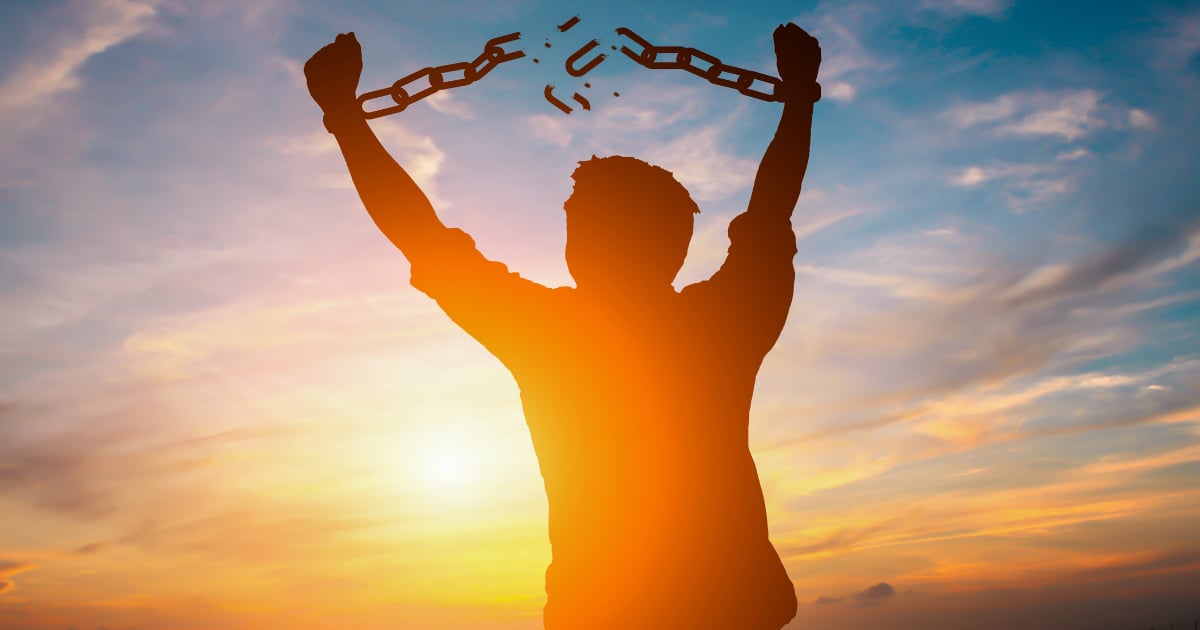Most of us are familiar with the prayer that Jesus taught His disciples. We pray it together, saying “Forgive us our debts—or tre spasses—as we forgive our debtors—or those who trespass against us.”
spasses—as we forgive our debtors—or those who trespass against us.”
If we grew up in the church, we’ve probably prayed it so many times that we often don’t hear what we’re saying, but in those words, we clearly set the standard for how much we want God to forgive us.
Indeed, in the following verses, Jesus says that if we don’t forgive those who have offended us, then “neither will your Father forgive your trespasses” (Mt. 6:14-15).
That’s drastic.
And yet, how often, when we’ve been offended, do we let the offense roll around in our thoughts, stirring up our emotions?
We don’t want to forgive until the other person understands the hurt they have inflicted, admits their wrong, asks forgiveness, and/or suffers in like manner.
And so we hold out, unwilling to forgive until we see justice meted out to our satisfaction.
But, if we hang onto those negative thoughts and feelings, it infects our whole being. Harboring unforgiveness leads to greater hurt in our lives.
We may blame the other person, but it isn’t the original offense, but our unwillingness to forgive that causes rottenness in our hearts. Like a little worm in an apple or a pear unforgiveness eats away at our soul, making it rotten from the inside out.
Our unforgiveness quickly turns to bitterness toward that person, then toward others who remind us of them or who inflict a similar offense. Then our souls become so infected with unforgiveness, bitterness, and anger that our whole view of life is affected.
us of them or who inflict a similar offense. Then our souls become so infected with unforgiveness, bitterness, and anger that our whole view of life is affected.
(And who enjoys being around a bitter person? . . . Not even the person him/herself.)
We lose sight of God’s blessings and the many things we have to be thankful for because our focus is on the negatives of life.
The solution is simple. If we forgive, we will be forgiven, and our souls will be renewed.
The answer is simple, but doing it is sometimes difficult. The hurt may be deep. The offense may be ongoing, with no hope of change. Others (well-meaning friends?) may encourage negative feelings by agreeing with them. Furthermore, the devil doesn’t want us to forgive, so he’ll keep stirring up the pain to keep it fresh, making it more difficult to forgive.
If you’re in bondage because of unforgiveness, you don’t have to stay there. A few steps can lead to freedom:
- Choose to forgive. Do you want peace and joy, or to stay in bondage? Some people have lived in unforgiveness so long they don’t want to change. Consider your options, and choose freedom.
- Then repent. Ask the Lord to forgive you for holding on. Ask Him to help you find freedom—and peace and joy.
- Speak (out loud) words of forgiveness. Be specific. “Lord I forgive (name) for (action) and for (the specific pain(s) you felt). I release him/her into your hands for You to deal with them as You see fit. You take care of bringing any justice that is needed.”
- If you aren’t yet willing to pray that prayer, pray, “Lord make me willing,” and pour out your heart to Him about why it’s hard. Close your time with Him with a commitment to forgive, such as, “Lord, I forgive (name). I choose to forgive, and I ask you to work it out in my heart.” Forgiveness is a choice. The feelings often follow.
- The next morning, when you wake up, before you get up, pray again, “Lord, I forgive . . ..” And the next morning, and the next, and the next . . . until you wake up and no longer feel negative toward that person. Keep it up, even if it takes a month or two.
- When the person re-offends: repeat the forgiveness, the dialog with God, the whole process. As you forgive them for the new offense, it is wise to repeat the forgiveness for the original offense. When we’re reminded of the original offense, we often need to forgive again—up to 70 times 7 times (Mt. 18:22)! Don’t be satisfied until you are freed and experience new life and joy.
When we don’t forgive, it creates barriers between us and God, family and friends, and even within ourselves. Nobody enjoys an angry bitter person. Furthermore, they don’t enjoy themselves or life.
The deeper the hurt and more difficult it is to forgive, the greater the release and f reedom will be upon truly forgiving. Jesus died so that we could enjoy righteousness (right relationships), peace, and joy, but we can block the flow of those blessings if we don’t forgive.
reedom will be upon truly forgiving. Jesus died so that we could enjoy righteousness (right relationships), peace, and joy, but we can block the flow of those blessings if we don’t forgive.
Our Lord forgave us when we didn’t deserve it. We can do the same. Press forward to be saved and free to be enjoy life in Christ.

 stronghold. I call upon the Lord, who is worthy to be praised, and I am saved from my enemies.” (Ps. 18:2-3)
stronghold. I call upon the Lord, who is worthy to be praised, and I am saved from my enemies.” (Ps. 18:2-3)